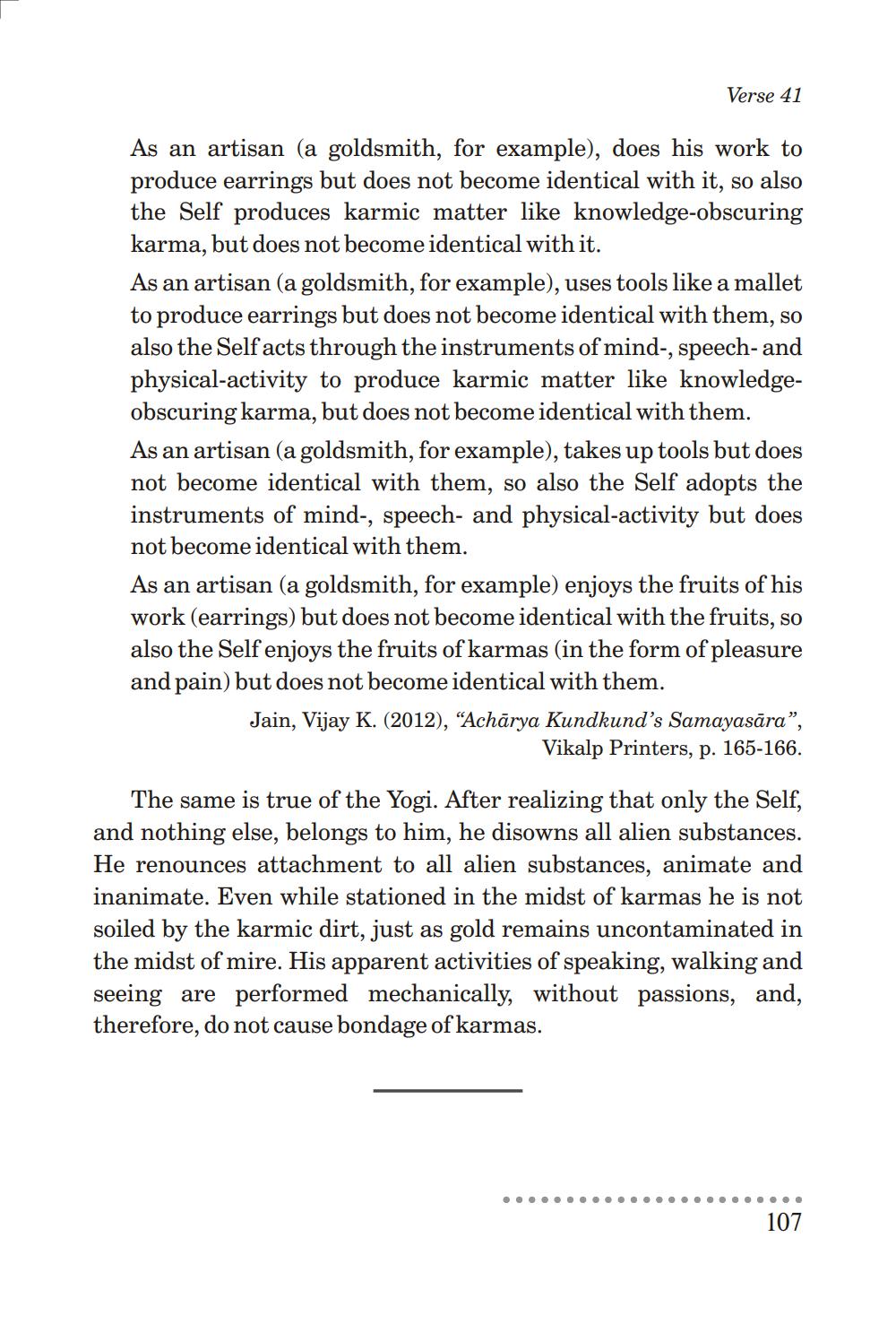________________
Verse 41
As an artisan (a goldsmith, for example), does his work to produce earrings but does not become identical with it, so also the Self produces karmic matter like knowledge-obscuring karma, but does not become identical with it. As an artisan (a goldsmith, for example), uses tools like a mallet to produce earrings but does not become identical with them, so also the Self acts through the instruments of mind-, speech-and physical-activity to produce karmic matter like knowledgeobscuring karma, but does not become identical with them. As an artisan (a goldsmith, for example), takes up tools but does not become identical with them, so also the Self adopts the instruments of mind-, speech- and physical-activity but does not become identical with them. As an artisan (a goldsmith, for example) enjoys the fruits of his work (earrings) but does not become identical with the fruits, so also the Self enjoys the fruits of karmas (in the form of pleasure and pain) but does not become identical with them. Jain, Vijay K. (2012), "Achārya Kundkund's Samayasāra”,
Vikalp Printers, p. 165-166.
The same is true of the Yogi. After realizing that only the Self, and nothing else, belongs to him, he disowns all alien substances. He renounces attachment to all alien substances, animate and inanimate. Even while stationed in the midst of karmas he is not soiled by the karmic dirt, just as gold remains uncontaminated in the midst of mire. His apparent activities of speaking, walking and seeing are performed mechanically, without passions, and, therefore, do not cause bondage of karmas.
107




